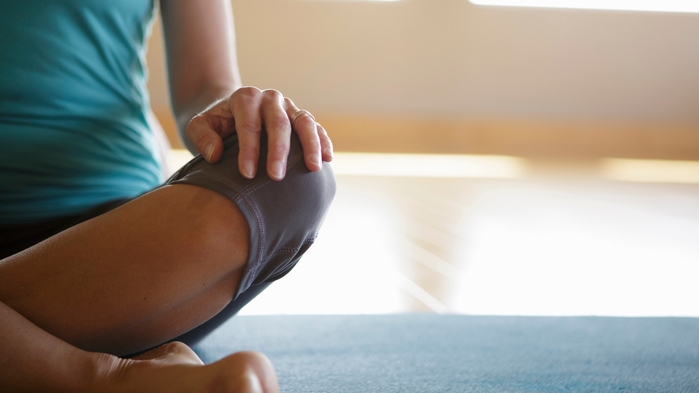Loss of bladder control is more common than you might think. Some 25 million people in the United States experience urinary incontinence and on average, women wait 6.5 years from the first time they experience symptoms before discussing it with their health care provider.
For Sarah*, it was about 23 years. After her son was born in the mid-90s, she started experiencing frequent leaking. She brushed it off, attributing it to pregnancy and childbirth and just decided it was something she would learn to live with.
“I’m almost 58,” Sarah said. “A lot of women my age – even those who haven’t had children – have a leaking problem. I just decided it was normal.”
Weak pelvic floor muscles are one of the main causes of urinary incontinence. Different conditions or life events can weaken the muscles, including pregnancy, childbirth and physical inactivity.
Many women considering treatment fear they will have to take medication or undergo surgery, but those are only two of a wide range of treatment options. After speaking with her physician, Sarah realized she could take action.
She learned about Novant Health’s pelvic floor exercise program – entitled You Go Girl! But Only When You Want To! – at Novant Health Forsyth Medical Center, in Winston-Salem, North Carolina. Over the course of four weeks, Sarah learned exercises that could strengthen her pelvic floor and improve bladder control.
“Our fitness class teaches women how to do exercises that involve their pelvic floor and their core to promote optimal pelvic health,” said Sheila Koone, nurse educator at Novant Health Forsyth Medical Center.
Koone said the goal of the program is to educate women and take away the stigma of incontinence.
“Anything below the belt was not discussed in previous generations,” Koone said. “Whether women had miscarriages, a sexually transmitted infection or urinary incontinence, it was not discussed in ‘polite company.’”
But this aversion to frank conversation has led to nearly two-thirds of women with urinary incontinence not even discussing their symptoms with their physician. And that greatly reduces their opportunity to take action.
“We want women to understand that they have power and control over this problem,” Koone said. “And if they aren’t able to fix their problem, we have a team of experts available who can help them.”
‘I was amazed’
Sarah was glad she took action. “I was amazed at how targeting exercises and being aware of where those muscles are made such a difference,” she said. “Plus they are exercises I can continue to do at home. I’ve noticed little changes, like now when I sneeze or cough, I’m able to hold it. I wasn’t able to do that before.”
In addition to the four-week class, there is a “platinum edition” for women with mobility or physical activity restrictions. The exercises are similar, but are chair-based and run over three weeks.
Jill* participated in the platinum edition exercise program in January 2017 after experiencing years of gradually progressing incontinence.
“In the class, I learned it’s not necessarily an aging problem, but a weak muscle problem,” she said. “The program was very personalized and therapeutic. I’m able to better understand the mind and body connection so I can find my muscles faster and exercise – even when no one is aware I’m doing it.”
In addition to the exercise component, the classes also touch on lifestyle changes.
“Unfortunately, some of the lifestyle choices we make contribute to bladder dysfunction,” Koone said. “These choices can be habitual and may include diet or drinking too much or too little fluid. By focusing on these aspects, we can help women pinpoint patterns in their lives that may be attributing to their problem.”
Koone said that iced tea and dark sodas, or excessive consumption of coffee or chocolate can cause bladder irritation and lead to incontinence.
Sipping a drink throughout the day can also trigger multiple trips to the restroom. Drinking in blocks of time could reduce the need to use the restroom as frequently.
Jill said she’s seen busyness affect her incontinence.
“We get busy and forget to exercise those muscles,” Jill said. “I put little reminders around my house so I remember to do my exercises. With practice, I know that I’m getting stronger and better.”
How to take charge
Koone urged women to answer the following questions:
-
Do you leak when standing up, sneezing, coughing, or laughing?
-
Do you feel sudden urges to urinate?
-
Do you have a hard time reaching the bathroom in time?
-
Do you need to use the bathroom more than twice per night?
-
Have you been diagnosed with a pelvic organ prolapse or feel heaviness in a bulge in the vagina?
-
If you answered yes to any of the above, talk with your doctor about your symptoms and ask for a referral to a Novant Health pelvic physical therapist, available in the Charlotte, Winston-Salem and Lexington regions.
"Don't wait and don't suffer in silence," she said. "Your providers are part of your team."
The women’s pelvic floor exercise program is offered at Novant Health Forsyth Medical Center. For more information or to register, visit NovantHealth.org/yougogirl
Names have been changed for privacy .
With the demands of juggling work and family, it can be difficult to find time to take care of yourself. Download our women’s health guide today.







